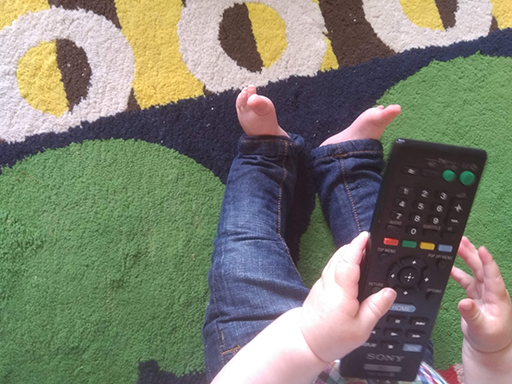5 Understanding the news behind the headlines
Sometimes things in the media related to children’s physical development can leave us feeling confused and unsure of who to believe.
For example, when the World Health Organization updated some of their recommendations for physical activity for young children under the age of 5 in 2019, these updated guidelines were picked up and interpreted by the press in various ways:
(Use Ctrl + click on the link to open in a new window.)
- The BBC [Tip: hold Ctrl and click a link to open it in a new tab. (Hide tip)] : ‘No sedentary screen time for babies’
- Professional magazine (Nursery World): ‘Guidance recommends no screen time for under-twos’
- Tabloid newspaper (The Sun): ‘Kids under two should never be allowed to watch ANY screens – or they’ll get fat’.
You need to be able to look at these headlines critically and delve a bit deeper to know how they relate to the children in your care. For example, the recommendations made about screen time in the WHO report only make up a very small section; other issues it covers include physical activity, sedentary behaviour and sleep.

It’s not easy to find advice on whether babies should be watching television, and for how long. The American Academy of Pediatrics recommends that the only type of digital media that children under 18 months should be engaging with is chatting by video calling.
Another reliable source of information you may find helpful if you would like to find out more about issues around young children and screen time is the RCPCH (Royal College of Paediatrics and Child Health).
Activity 3
Read the case study below and consider what advice you might give to this parent.
Case study: Aisha
Aisha is worried because the mums at her baby and toddler group have been talking about how harmful technology can be for young children.
They discuss newspaper headlines about children sitting still for too long and how harmful this can be. She wonders if she should take the iPad off her son who is 3 years old.
Discussion
You might ask her to think about how much time every day her son is using the iPad – if she tracks this she might be surprised. Other things you could talk about are how long he engages in physical activity in a day and how this compares with iPad use.
She could also consider whether he gets outside daily and whether he has a good sleep routine. Aisha may find she has nothing to worry about or she may decide to tweak her son’s routine after your conversation.
